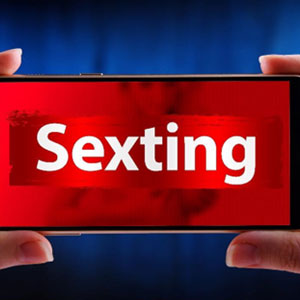Understanding The Complexities And Legal Implications Of Sexting
In this article, you can discover:
- Some of the Legal Boundaries and Risks of Sexting, Especially When Minors Are Involved.
- The Inconsistencies in Michigan Law Regarding Sexting and Age of Consent.
- The Potential for Minors to Be Charged for Sexting or Explicit Photo Exchange.
What Constitutes Sexting, And What Are The Legal Boundaries Of Sexting?
Sexting refers to discussing sex in any form with another person. While sexting between consenting adults is legal, serious issues arise when minors are involved. The primary complication in such cases, especially online, is verifying age.
Regardless of what age they claim to be, sexting with someone under 18 can lead to legal consequences. This situation creates a strict liability issue: if the other party is a minor, legal consequences are triggered regardless of their “claimed age.”
How Does Michigan Law Treat Sexting And Age Of Consent Inconsistencies?
Michigan law presents a notable inconsistency regarding the age of consent and sexting. While the legal age for sexual consent is 16, the threshold for internet sex crimes is 18. This discrepancy leads to paradoxical situations. For example, a 17-year-old can legally engage in sexual activities with a 16-year-old, but if they sext or exchange explicit photos, they technically commit a crime.
This inconsistency extends to 18-year-olds dating younger teenagers, where sexual consent is legal, but any form of sexting or explicit photo exchange violates the law. This dichotomy between the ages for different sexual offenses (16 for some, 18 for others) is a significant point of contention and lacks logical coherence.
Can Minors Be Charged For Sexting Or Exchange Of Explicit Photographs Between One Another?
Yes, minors can be legally charged for sexting or exchanging explicit photographs if they are under 18. In Michigan, this falls under the crimes of possession of child sexually abusive material and engaging in child sexually abusive activity.
Prosecutors sometimes exercise discretion in these cases, recognizing that charging equally situated minors may not always be appropriate. However, this discretion can lead to inconsistent application of the law.
Situations where minors are not equally situated, or parental influence is strong, can result in charges that may not be in the best interest of justice. The age cutoff of 18 for internet sex crimes compared to 16 for other sexual offenses creates a problematic landscape, offering too much room for prosecutorial discretion and potential misuse.
For a comprehensive understanding of these complex legal matters and guidance on how to navigate them, seeking professional legal advice is essential. For more information and assistance on Being Charged With A Sexting Offense In Michigan, a free initial consultation is your next best step. Get the information you are seeking by calling (248) 509-0056 today.

Call Today For Your Free Case Strategy Session
(248) 509-0056

